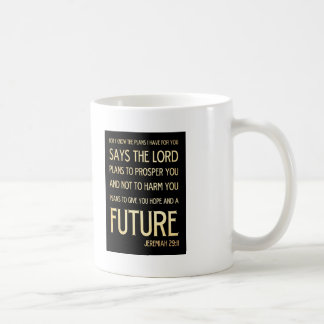 When I graduated high school I remember getting key chains, coffee mugs, and probably even socks with Jeremiah 29:11 stamped on there somewhere. It’s a verse which we love to grab ahold of whenever the future isn’t so clear. What a terrific promise:
When I graduated high school I remember getting key chains, coffee mugs, and probably even socks with Jeremiah 29:11 stamped on there somewhere. It’s a verse which we love to grab ahold of whenever the future isn’t so clear. What a terrific promise:
For I know the plans I have for you, declares the LORD, plans for welfare and not for evil, to give you a future and a hope. (Jeremiah 29:11 ESV)
There is only one major problem with making this my life verse; namely, context. A good rule for faithful Bible study is to always make sure to place a text in its context. If you rip it out of its context you are not being faithful to God’s intention for that text. To accurately interpret what Jeremiah says our interpretation needs to make sense to the original audience.
In its context Jeremiah 29 is speaking to those who were carried into exile from Jerusalem to Babylon (see 29:4). That “you” in verse 11 is not to an individual it is to an entire nation. God is saying that though they will experience 70 years in exile (see 29:10) that he will eventually redeem the people of Israel. But some of those who heard Jeremiah 29:11 died in exile. This was a promise to a nation.
And so does this mean that I cannot apply it to my own life? Does Jeremiah 29:11 have no meaning to the 21st century believer? Do I smash my Jeremiah 29:11 coffee mug?
Not so fast.
When we talk about placing a text in its context we aren’t just saying to place it in its immediate context. We must place the Scripture into three contexts. As an example Randal Pelton, in his book Preaching With Accuracy, labels the three contexts as the textbi (textual big idea), conbi (contextual big idea), and canbi (canonical big idea). Others have referred to the three horizons of biblical interpretation.
So what does this mean (in simple English, please) for Jeremiah 29:11?
In the immediate context Jeremiah 29:11 is an encouragement to exiled believers. It is an encouragement that though they are going through the furnace God’s intention for this people is to give them a hope and a future.
This fits with the overall theme of Jeremiah. (The conbi, if you will). Jeremiah is writing to let his people know about the terrible times of the exile. But he is also writing to let them know that exile isn’t the end of the story. God is going to provide a new covenant with His people, and he is going to even do it through these exiled people.
How does he do it? Or to ask that another way, how does Jeremiah 29:11 fit into the overall message and thrust of Scripture?
It is true that the near application applies to the exiled people from Jerusalem to Babylon. But there is a greater truth in this passage than just that. God is radically dedicated to the future of His people. He will do whatever it takes (even exile) to create for Himself passionate worshippers. And he’ll ultimately create these passionate worshippers through the new covenant which comes through His Son, Jesus. The “future” and the “hope” that Jeremiah is talking about is found in the rescue that the Lord Jesus has provided.
So, don’t smash that coffee mug just yet. Sure, its not a promise that you’ll get that job promotion because God wants you to have a totally awesome future (as in, 10 years from now). But it is a promise that if you are in Christ, God is radically dedicated to your eternal good. The plans He has for you are great and wonderful. So wonderful that all the suffering you are going through now will be light and momentary in light of what God has in store for you.
As you swivel that Jeremiah 29:11 coffee mug in your hands and ponder the future—don’t claim this as a promise for your job promotion. It isn’t saying that. It’s saying something far greater. Keep the coffee mug but use it to exult in Jesus and the future that He has purchased for you.
I should read your blog more often. It is about time someone tackled the excessive adherence to context without understanding the broader sweep of Scripture. Many thanks.